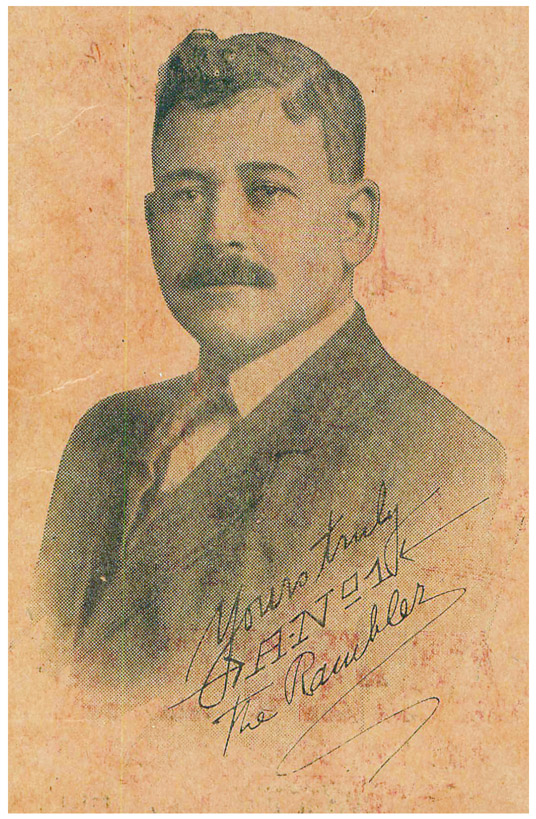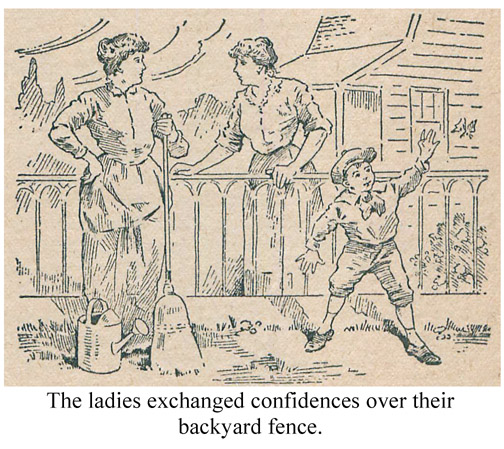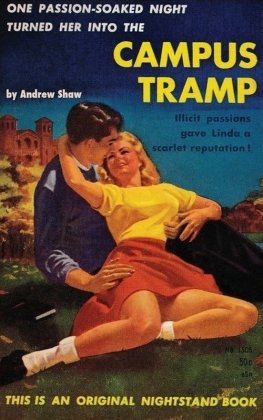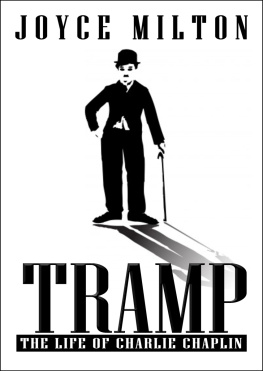A No. 1 - The Snare of the Road
Here you can read online A No. 1 - The Snare of the Road full text of the book (entire story) in english for free. Download pdf and epub, get meaning, cover and reviews about this ebook. year: 2012, publisher: Garrett County Press, genre: Detective and thriller. Description of the work, (preface) as well as reviews are available. Best literature library LitArk.com created for fans of good reading and offers a wide selection of genres:
Romance novel
Science fiction
Adventure
Detective
Science
History
Home and family
Prose
Art
Politics
Computer
Non-fiction
Religion
Business
Children
Humor
Choose a favorite category and find really read worthwhile books. Enjoy immersion in the world of imagination, feel the emotions of the characters or learn something new for yourself, make an fascinating discovery.

- Book:The Snare of the Road
- Author:
- Publisher:Garrett County Press
- Genre:
- Year:2012
- Rating:3 / 5
- Favourites:Add to favourites
- Your mark:
- 60
- 1
- 2
- 3
- 4
- 5
The Snare of the Road: summary, description and annotation
We offer to read an annotation, description, summary or preface (depends on what the author of the book "The Snare of the Road" wrote himself). If you haven't found the necessary information about the book — write in the comments, we will try to find it.
The Snare of the Road was first published in 1916 by A-No. 1, The Famous Tramp. These are true stories about trains, tramping and hoboes told from the point of view of the tramp. Illustrated and fabulously entertaining.
The Snare of the Road — read online for free the complete book (whole text) full work
Below is the text of the book, divided by pages. System saving the place of the last page read, allows you to conveniently read the book "The Snare of the Road" online for free, without having to search again every time where you left off. Put a bookmark, and you can go to the page where you finished reading at any time.
Font size:
Interval:
Bookmark:

________________________
P ITIABLE indeed is the lot of parents, my dear Mrs. Ridder, confided Mrs. Davis over the back yard fence to her neighbor, who have slaved as many years as we have to respectably bring up their children and then are forced to admit that their devotion is about to be rewarded with basest disappointment by one of their offspring.
Its Gerald, our firstborn, of whom I am complaining, and who since the return to town of Bert Coleman from his annual hobo trip to the western harvest fields, has become almost unmanageable although heretofore he has been a most tractable lad. It seems as if the burly never-do well has made it an obligation to poison the receptive minds of youngsters whose parents reside in this neighborhood with garbled accounts of the disgusting beggar life he led during his absence.
Time and again, Mr. Davis and I have warned our son when he chanced to repeat some of the crazy fables he had heard Coleman relate as having happened while he was hoboing box cars, that the unprincipled rascal had carefully refrained from making the least mention of the numerous revolting items which beset the path of the hoboes and concerning which we elders have read articles without number in the dailies and the magazines, and which stories, at that, dared to describe only those of the ugly truths which were printable.

The shameless scamp, for instance, never breathed a word that while en route he had associated on terms of equality with some of the foulest dregs of humanity; had suffered from the pangs of hunger whenever he had failed to connect by means of scurvy lies with the unsavory leavings from the tables of honest folks; had been continually harassed and in all probability sent to prison by the police; had made while trespassing a ghastly joke of the ever-present peril of finishing his days as a miserably deformed cripple, and had foolishly and willfully exposed himself to the endless number of other hazards and privations which are the sole reward of those who lack the will power to resist the lure of the Road.
Almost uncanny is the influence for evil that the scoundrel has attained over our poor boy, sighed the unfortunate mother. Only this afternoon I received a further confirmation of the great misfortune that has so unexpectedly overwhelmed our family circle, heretofore such a happy one. I took Gerald to task for neglecting his regular school lessons for a study of maps and railroad timetables. Instead of accepting with respect the richly deserved reprimand, he flew into a towering rage and dared to threaten me, his mother who has guarded him against harm all his days, that if his father and I did not allow him to do exactly as he pleased, one of these fine mornings we would find his bed had not been occupied during the preceding night and he had forever disappeared.
A stitch at the proper time would now save you nine, my dear Mrs. Davis, interjected Mrs. Ridder, instead of expressing sympathy with her neighbor in her tribulations.
Pray tell me how to make this ancient saying fit the trouble we are having with our son? quizzed the anxious mother.
Mr. Ridder and I spared no pains to thoroughly acquaint our boys at an early age with every pitfall of the underworld and so quenched every desire that might have tempted them in later years to lead the life of outcasts, explained Mrs. Ridder who had raised three sturdy sons to successful manhood. By employing this simple preventive we fortified our lads with a safeguard that practical tests amply demonstrated to be an insurmountable obstacle against the designs of scoundrels of the class you mentioned.
As it is too late to recant sins of omission can you suggest some other remedy? pleaded Mrs. Davis.
Have your husband call at police headquarters and there register a complaint against the fellow who is trying to despoil your home, advanced Mrs. Ridder, believing she had found an effective means to silence the tempter.
Mr. Davis has been to see the chief, she was informed, but the sum of the comfort he received amounted to a terse statement that as long as Coleman did not commit a more serious offense than the doping of guileless youths with faked adventure tales, he had not laid himself liable to interference by the authorities.
Why not make it impossible for your Gerald to associate with the deceiver? proposed Mrs. Ridder, undaunted by her previous defeats.
Since we became aware that our son was among the youths who almost nightly were the rascals eager pupils, we have vainly tried to dissuade Gerald and those of his chums we thought could be influenced for the better, from attending these meetings, reported Mrs. Davis. We are daily receiving new evidence how deeply the teachings of the scamp have undermined the resistance to evil of these lads by the stubborn refusal of our own boy to listen to reason, not even when his father had frequently chastised him for his disobedience.
This statement must have acted as a damper over Mrs. Ridders concern in the family affairs of her neighbor for a prolonged pause ensued which was only terminated when Mrs. Davis re-introduced the topic they had discussed by saying: Heretofore our eldest had never taken the slightest interest in the wayfarers who came to our home to ply their trade. In fact, so pronounced was his aversion towards vagrants that when last fall a hobo I had treated especially well proved the spirit of his gratitude by chalking an easy mark on our garden gate and as a sequence our residence became almost overnight the goal of every Wandering Willie, it was our Gerald who first suggested the purchase of a watchdog as a counteractive of the land-wide advertising my charitable kindness had doubtlessly received.
Nowadays the story is one of a quite different tenor. The death of the dog by poison we are laying to the door of Gerald who seems to have made it his business to look after the wants of every tramp calling at our home. Last week he gave to an unusually repulsive hobo the only pair of shoes he possessed except those he wears at present. Furthermore, Mr. Davis and I have to be constantly on guard to avert his indulging in his latest favorite pastime, which is the interviewing of vagabonds on their method of getting through the world.
If I were placed in your predicament, I would take fullest advantage of the failing you mentioned last, Mrs. Davis, said Mrs. Ridder, interrupting the lamentations of her friend, by inducing every tramp I feed at my door to relate while the wayward youth is present, details of the actual conditions under which hoboes are compelled to satisfy their roving mania, I feel assured that the stories told by the tramps will amply supplement the one-sided accounts the boy has previously heard, and in all probability will drive from his mind the lunatic notion that he must re-enact the lawless undertakings of his unscrupulous teacher.
I shall repeat your instructions to my husband, promised Mrs. Davis, and if your theory in practice proves the salvation of our deluded boy, his heart-broken parents will ever remember the one who rendered them a timely service.
Bidding farewell to her neighbor, Mrs. Davis returned to her own residence. Finding her husband who had come home for his supper, alone in the parlor, she gave him a hasty outline of the counsel she had received.
The clever suggestion of shrewd Mrs. Ridder sounds most promising, my dear, commented Mr. Davis when he had listened to his wifes explanations. Her idea follows in general aspects the modern method of combating vices by freely providing the younger generations with detailed accounts of their attributes, a precaution which had always stood the test when temptation seeks to add new victims to the millions of uninstructed humans which these vices drag to disgraceful and premature graves.
Font size:
Interval:
Bookmark:
Similar books «The Snare of the Road»
Look at similar books to The Snare of the Road. We have selected literature similar in name and meaning in the hope of providing readers with more options to find new, interesting, not yet read works.
Discussion, reviews of the book The Snare of the Road and just readers' own opinions. Leave your comments, write what you think about the work, its meaning or the main characters. Specify what exactly you liked and what you didn't like, and why you think so.








